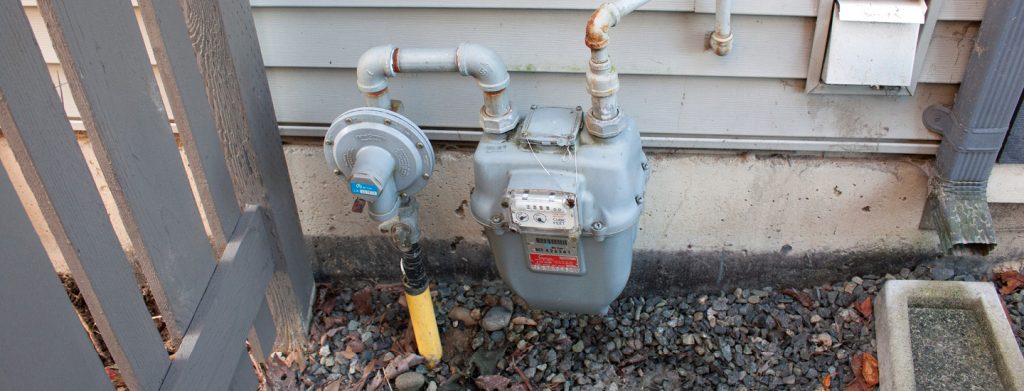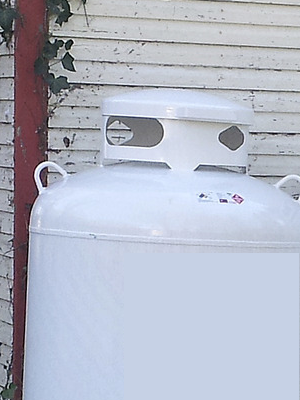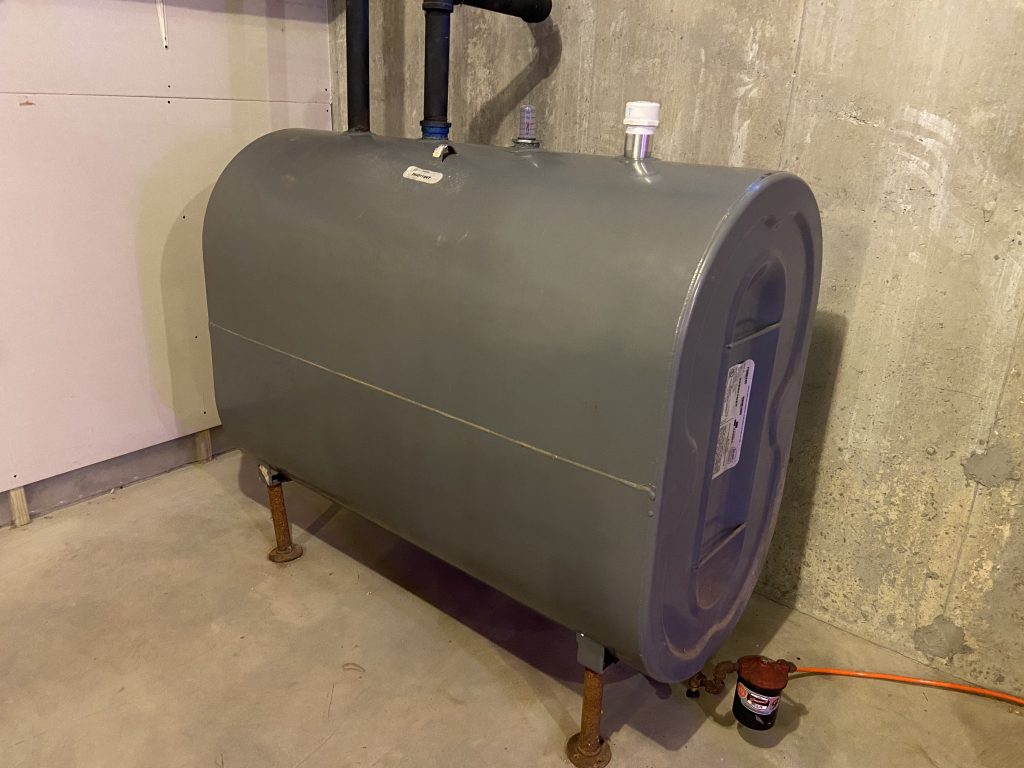Choosing a home heating fuel type is a major decision if you live in the northeast. While smaller homes or condominiums may offer electric heat, most larger homes do not, as it becomes too expensive to heat large spaces. Instead, more cost-effective heating fuels exist, and we will break down which is best in this post below.
Heating Oil, Propane, and Natural Gas
The three main heating fuel types are heating oil, natural gas, and propane. Each has its pros and cons, and it’s important to choose one based on what you are hoping to get from your house. For instance, if you must have a gas stove at the house, you will want to have natural gas or propane available – even if it is for cooking only.
Natural Gas
Natural gas is a popular choice in the northeast, but tends to only be available in cities and the densely populated surrounding towns. It is piped through underground lines beneath the street. You can often tell where there is natural gas available because the roads are constantly being cut open and patched to access and maintain the lines. You can also look at the homes along the street and see if they are fitted with meters like the one pictured below. These meters regulate and track the flow of natural gas into the home. The homeowner is then billed by the natural gas company just like they are billed for electricity usage. Outside of the cities and in the suburbs, you will find that houses are more spread out, roads have more hills and rocks, and natural gas is much less common. For this reason, houses in the suburbs are often equipped with storage tanks at the house for either heating oil or propane.

Propane
Propane is very similar to natural gas, but it is stored in holding tanks on the property instead of being plumbed in from a pipeline. The gas is pressurized in the tank and actually stored as a liquid – hence the common abbreviation L.P. for liquid propane. The tanks are most often stored above-ground, and are rather unsightly. For approximately 95% of the tanks in the northeast, the propane provider actually owns the tanks as well. This is problematic, as it prevents you as the homeowner from ordering propane from anyone else. This leads to a very high price per gallon for propane – sometimes as high as 2X the price per gallon of heating oil. If you are considering choosing propane for your home heating fuel needs, make sure you read this post here.

Heating Oil
Heating oil is a favorite for home heating because it puts out a tremendous amount of heat – approximately 35% more effective BTUs per gallon than propane – at a much lower cost than propane. While heating oil and natural gas tend to be comparable lately in terms of cost, there were times when the price of heating oil rose and made natural gas a much more attractive option. Oil prices have declined significantly in recent years, however, and remain low today. Another benefit of heating oil is that it can be bought off-season and stored, allowing the homeowner to benefit from lower prices in the summer. There are also dozens of heating oil providers in nearly every town in the northeast, meaning there is always competition to choose from. This competition ensures that prices stay reasonable, and you will not be stuck with a monopolistic utility provider as you will with natural gas.

Choosing Between Heating Oil, Natural Gas, and Propane
If given the choice between all three options, it’s important to consider the trade-offs. In terms of cost, heating oil and natural gas are the clear winners. Propane is often twice as expensive when used to heat a house. Since natural gas is provided by a monopoly utility provider, you may prefer heating oil so you can choose from multiple suppliers. If you do not want to worry about your fuel supply, you can sign up for ‘automatic delivery’ of heating oil or propane, in which case the truck will come automatically on a schedule, and the experience will be much like that of having a natural gas line plumbed right into your house. The one limitation of heating oil, however, is that while you can use it to heat your home and hot water, you cannot use it for a gas stove, gas fireplace, or generator. For these, you will need a propane tank outside the house, or natural gas.
Conclusion: Heating Oil and Propane OR Natural Gas
If you find a house that has natural gas coming in from the outside, then you will be able to cost-effectively heat your home, and run auxiliary systems such as fireplaces, stoves, etc.
If natural gas is not available, however, we recommend heating oil to heat your home. Heating oil is significantly more cost-effective than propane, and affords you the ability to shop around from multiple suppliers to get the best price. Since propane suppliers almost always own the tank, there is very little you can do to negotiate a good price. With heating oil, however, you can use a site like FuelSnap to check heating oil prices from local, reputable heating oil dealers in your area and order heating oil online in seconds.
If natural gas is not available and you would like the best of both worlds, then we highly recommend heating oil and propane. Using heating oil to heat your home and hot water is the most cost-effective solution available. And having a single propane tank for stove-top cooking, gas fireplaces, and maybe even a standby generator is a great option as well.
Happy heating,
Steve



